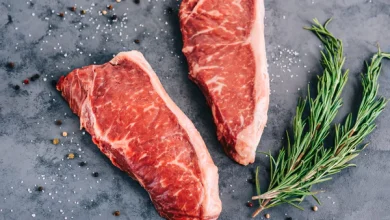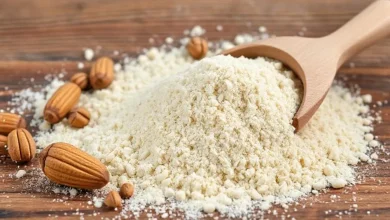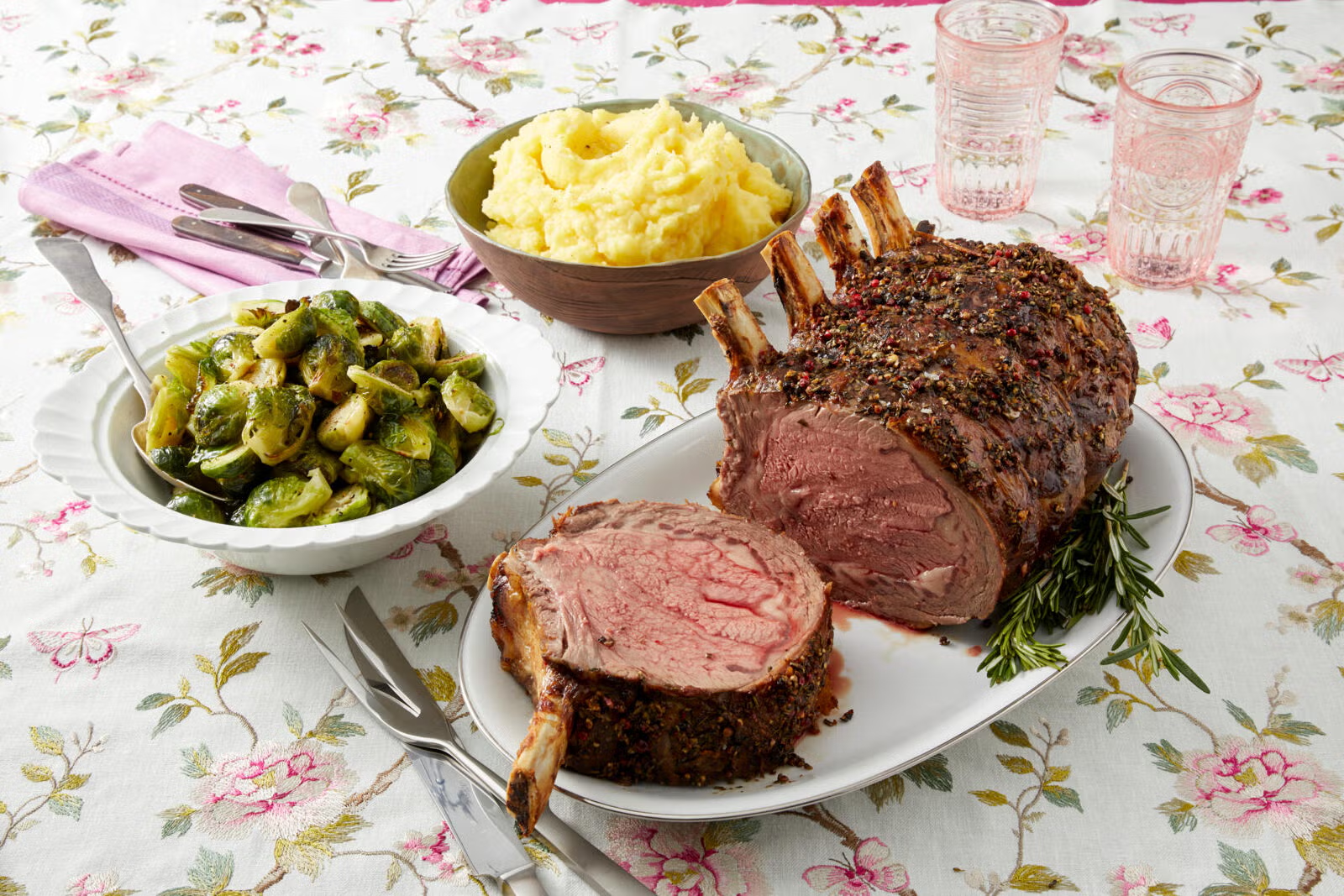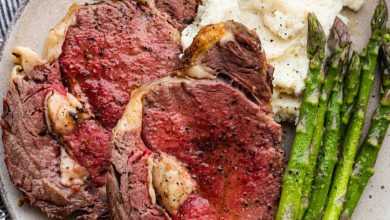Pork Shoulder (Boston Butt) Blade Steak, Cooked, Braised – Nutritional Information
Pork shoulder, specifically the Boston butt blade steak, is a flavorful and tender cut of meat that becomes wonderfully juicy when braised. It’s a versatile ingredient used in various dishes, from hearty stews to pulled pork sandwiches. Below is the nutritional breakdown of braised pork shoulder (Boston Butt) blade steak, showcasing its rich protein content and essential vitamins and minerals.
Nutritional Information per 100g:
| Nutrient | Amount |
|---|---|
| Energy | 267 kcal |
| Protein | 25.07 g |
| Fat | 17.69 g |
| Saturated Fat | 6.58 g |
| Carbohydrates | 0.0 g |
| Fiber | 0.0 g |
| Sugar | 0.0 g |
| Calcium | 26.0 mg |
| Iron | 1.75 mg |
| Magnesium | 23 mg |
| Phosphorus | 208.0 mg |
| Potassium | 305.0 mg |
| Sodium | 58.0 mg |
| Zinc | 4.84 mg |
| Copper | 0.129 mcg |
| Manganese | 0.012 mg |
| Selenium | 42.4 mcg |
| Vitamin C | 0.0 mg |
| Thiamin (Vitamin B1) | 0.501 mg |
| Riboflavin (Vitamin B2) | 0.365 mg |
| Niacin (Vitamin B3) | 3.872 mg |
| Vitamin B6 | 0.448 mg |
| Folate (Vitamin B9) | 0.0 mcg |
| Vitamin B12 | 0.93 mcg |
| Vitamin A | 2.0 mcg |
| Vitamin E | 0.12 mg |
| Vitamin D2 | 1.2 mcg |
Allergen Information:
Pork shoulder, as a type of meat, does not contain common allergens such as dairy, gluten, nuts, or soy. However, it’s important to note that those with specific sensitivities or food allergies should always verify the preparation process, especially if additional ingredients or seasonings are used in the cooking method.
Dietary Preferences:
Pork shoulder is naturally free from carbohydrates and sugars, making it suitable for those following low-carb or ketogenic diets. It is also a great source of protein, making it an excellent option for those looking to increase their protein intake, whether for muscle building or general health maintenance.
For individuals following a paleo or carnivore diet, pork shoulder (Boston Butt) blade steak is an ideal choice. However, people following vegetarian or vegan diets should avoid this meat, as it is animal-based. Additionally, the relatively high fat content, particularly in saturated fats, should be considered by those monitoring their fat intake, including those following heart-healthy diets.
Cooking Tips and Advice:
Pork shoulder is one of those cuts of meat that benefits greatly from slow cooking methods, like braising. This cooking method allows the meat to become incredibly tender, breaking down the connective tissues and infusing it with flavor. When braised, the pork shoulder soaks up the flavors of the spices, liquids, and any vegetables you choose to pair it with.
For a simple braised pork shoulder, season the meat with a blend of herbs and spices (such as garlic, rosemary, thyme, salt, and pepper), sear it in a hot pan to develop a rich, caramelized crust, then cook it slowly in a flavorful liquid like broth or wine until tender. This cut is also ideal for shredding, making it perfect for tacos, sandwiches, or served over rice or mashed potatoes.
Conclusion:
Braised pork shoulder (Boston Butt) blade steak is a delicious and nutritious meat option, packed with protein and a variety of essential minerals and vitamins. It’s ideal for hearty meals and can be enjoyed in a variety of cooking styles, particularly braising or slow-roasting. Although it contains a significant amount of fat, particularly saturated fat, its nutritional benefits make it a great addition to a well-balanced diet when consumed in moderation.
Whether you’re preparing a cozy dinner or feeding a crowd, this versatile cut of pork offers both great flavor and a rich nutrient profile to support your health and culinary creativity.










